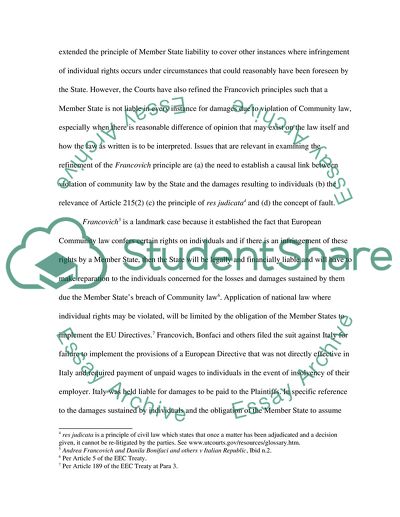Cite this document
(“From Francovich to Brasserie du Pecheur Essay Example | Topics and Well Written Essays - 3500 words”, n.d.)
Retrieved from https://studentshare.org/law/1537238-from-francovich-to-brasserie-du-pecheur
Retrieved from https://studentshare.org/law/1537238-from-francovich-to-brasserie-du-pecheur
(From Francovich to Brasserie Du Pecheur Essay Example | Topics and Well Written Essays - 3500 Words)
https://studentshare.org/law/1537238-from-francovich-to-brasserie-du-pecheur.
https://studentshare.org/law/1537238-from-francovich-to-brasserie-du-pecheur.
“From Francovich to Brasserie Du Pecheur Essay Example | Topics and Well Written Essays - 3500 Words”, n.d. https://studentshare.org/law/1537238-from-francovich-to-brasserie-du-pecheur.


